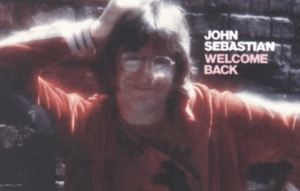10 “Facts” That Are Actually Wrong About Famous Classic Rock Songs

Bruce Springsteen performing You Never Can Tell in Leipzig, Germany, 2013 - Bruce Springsteen / YouTube
You’ve heard these songs a hundred times—maybe even sung along without a second thought. But what if the stories you’ve come to believe about them were never true in the first place? A lot of what we think we know about classic rock tracks isn’t rooted in fact, but in hearsay, misquotes, or myths that just stuck around for decades.
Some of these misconceptions are harmless, like mistaking a song’s subject matter. Others completely twist the intention behind the lyrics, turning personal reflections into misunderstood anthems or political statements that were never meant to be. And the more beloved the song, the more likely its mythology has grown out of proportion.
In this article, we’re peeling back the layers of rock history to set the record straight. From misheard meanings to false origin stories, these ten “facts” about classic songs aren’t as accurate as they seem—and once you know the truth, you may never hear them the same way again.
1. Billy Idol’s Hit Isn’t About What You Think
For decades, listeners have winked and nudged at the presumed meaning behind Billy Idol’s “Dancing With Myself,” assuming the title was a euphemism for something a little more personal. It didn’t help that Idol’s sneering delivery and punk swagger added to the song’s suggestive tone. But as it turns out, the real meaning runs much deeper—and not in the direction most assumed.
According to Idol himself, the track was inspired by a visit to Tokyo where he observed the club scene—hundreds of young people dancing alone, facing mirrors rather than each other. When Generation X first recorded the song, and especially when Idol re-recorded it as a solo artist, he meant it as a commentary on isolation and the search for identity, not self-indulgence. The music video, with its post-apocalyptic aesthetic and zombie-dancing metaphor, reflects that loneliness and struggle.
So while the song has been the butt of many jokes, its origins are rooted in a much more thoughtful exploration of youth culture in the early 1980s. “Dancing With Myself” is less about bedroom antics and more about societal disconnection—though Idol was likely amused by the double meaning, too.
2. Green Day’s Ballad Isn’t About 9/11
The emotionally charged music video for Green Day’s “Wake Me Up When September Ends” shows a young couple torn apart by war, leading many to associate the song with the aftermath of 9/11 or the wars in Iraq and Afghanistan. Released during the height of the Bush administration and amid the band’s politically heavy American Idiot album, it seemed to fit into a narrative of national grief and unrest.
But the reality is far more personal. Billie Joe Armstrong wrote the song about the loss of his father, who died of cancer in September 1982. Armstrong was just ten years old when it happened, and the grief was so intense that he reportedly ran home and locked himself in his room after the funeral, telling his mother, “Wake me up when September ends.” The song is a time capsule of childhood mourning, not geopolitical commentary.
The misinterpretation makes sense—music videos often tell different stories than the lyrics, and timing can shift perception. But the rawness at the heart of “Wake Me Up When September Ends” is rooted in personal loss, not historical tragedy.
3. “Blinded By the Light” Isn’t As Dirty As It Sounds
“Blinded by the light / Revved up like a deuce…”—you probably already know where this is going. Few lyrics in rock history have been as widely misheard or misinterpreted as this one. Many listeners believed they were hearing a very different word than “deuce,” one that dramatically shifted the line’s meaning into a more risqué territory.
The confusion comes partly from Manfred Mann’s thick accent and partly from Bruce Springsteen’s original lyrics, which the band adapted. “Deuce” actually refers to a 1932 Ford coupe—classic car slang that Springsteen often used in his early work. Manfred Mann changed the lyric from “cut loose like a deuce” to “revved up like a deuce,” which arguably made things more confusing phonetically.
Despite the decades of double-takes and chuckles, there’s nothing X-rated about the song. Just a misunderstood hot rod reference that’s been stuck in people’s heads for nearly fifty years.
4. This Iconic Beatles Track Is Not Just a Drug Song
It’s easy to assume that any Beatles song with dreamy lyrics and psychedelic imagery is about drugs—especially one whose initials spell out L-S-D. “Lucy in the Sky with Diamonds” has long been a magnet for speculation, with many convinced it was John Lennon’s musical ode to hallucinogens.
But Lennon always maintained that the inspiration came from his son, Julian, who brought home a crayon drawing of a classmate named Lucy. The child had labeled it “Lucy—in the sky with diamonds,” and John was struck by the surreal poetry of the phrase. While the song’s kaleidoscopic visuals do mirror the era’s experimentation, Lennon insisted it wasn’t chemically inspired.
Of course, fans have continued to debate the truth, some dismissing Lennon’s explanation as clever deflection. But whether it was the product of innocence or intoxication, the song’s roots lie in a child’s imagination—not a tab of acid.
5. Dolly’s Goodbye Wasn’t Romantic
Thanks to Whitney Houston’s powerhouse rendition and its association with The Bodyguard, “I Will Always Love You” is widely viewed as a romantic torch song. Its sweeping delivery and lyrical farewell seem tailor-made for stories of heartbreak between lovers.
But Dolly Parton didn’t write the song about a breakup in the romantic sense. It was penned as a graceful exit from her professional relationship with Porter Wagoner, the country music star and host who had helped launch her career. Their working relationship had grown strained, and Dolly wanted to go solo. “I Will Always Love You” was her way of saying goodbye with love and gratitude.
While the context has been lost on many listeners, the sentiment remains powerful. It’s a love song, just not the kind most people expect—a reminder that parting ways can be bittersweet without being romantic.
6. TLC Wasn’t Just Singing About Dreams
At first glance—or listen—“Waterfalls” comes across like a gentle warning about chasing the wrong things in life. Its laid-back groove and memorable chorus made it a radio staple, but many fans overlooked just how serious the song’s subject matter really is. TLC wasn’t just talking about vague risk-taking or broken dreams.
In fact, “Waterfalls” tackles heavy social issues, including drug addiction and the AIDS epidemic, both of which were tearing through communities in the early ‘90s. In a 2018 interview with The Guardian, Chilli emphasized that the song was meant to encourage personal responsibility, especially around sexual behavior and health—a message that was still considered taboo in pop music at the time.
The music video underscored this, featuring storylines about gang violence and HIV, yet many listeners still missed the depth behind the lyrics. “Waterfalls” is far more than an inspirational anthem—it’s a sobering call to awareness wrapped in smooth R&B.
7. Bryan Adams Meant Something Else Entirely
Most fans picture teenage romance, garage bands, and summer memories when they hear “Summer of ’69.” The song’s nostalgic tone and evocative storytelling made it a generational favorite, often mistaken for Bryan Adams’ actual reflections on his youth. But as it turns out, there’s nothing innocent about the number 69 in this context.
Adams admitted in a 2020 LouderSound interview that the title is a cheeky sexual reference. Co-writer Jim Vallance originally approached the song as a classic “best days of my life” theme, but Adams steered it toward a more provocative meaning. The number, to him, symbolized youthful lust, not a specific year or a sentimental season.
It’s a classic case of double meaning—and depending on how deeply you want to look, the song can be both a rock ‘n’ roll time capsule and a tongue-in-cheek nod to adolescent fantasies. Either way, the “summer of love” here was more bedroom than backyard.
8. The Chorus in “Born in the U.S.A.” Lied to You
With its booming drums, anthemic hook, and proud-sounding title, “Born in the U.S.A.” is often misread as a patriotic rock anthem. Politicians have even used it as campaign music, assuming it’s a chest-thumping celebration of American pride. But a closer look at the verses tells a much different story—one of pain, injustice, and disillusionment.
Bruce Springsteen was writing about Vietnam veterans returning home to a country that no longer felt like theirs. The lyrics speak of poverty, government neglect, and systemic failure. In a 2019 NPR interview, Springsteen expressed frustration at how many people—most famously Ronald Reagan—completely misunderstood the song’s meaning.
So while the chorus may sound triumphant, the verses are soaked in bitterness. “Born in the U.S.A.” is protest disguised as patriotism, and its wide misinterpretation is proof that sometimes, people don’t listen past the hook.
9. That Drowning Story Isn’t Real
Of all the urban legends attached to classic rock songs, few are as widespread as the myth behind “In the Air Tonight.” The tale goes like this: Phil Collins witnessed a man let someone drown, then invited that man to a concert, spotlighted him from the stage, and sang this haunting song right to his face. It’s cinematic, sure—but it’s also completely false.
In reality, Collins has said repeatedly that the song was born from his divorce, not revenge. During a 2016 interview with Rolling Stone, he confirmed that the lyrics came from a dark emotional place during one of the lowest points in his personal life. The haunting tone and cryptic lines naturally lent themselves to myth-making.
And yet, the legend persists. Maybe it’s because people love a good dramatic twist, or maybe the track’s brooding atmosphere invites mystery. Either way, no one drowned—and no one got called out from the stage.
10. Sting Wrote a Song About Surveillance, Not Love
If there were a contest for the most misunderstood song in rock history, “Every Breath You Take” might win it. Played at weddings and romantic events for decades, it’s often assumed to be a heartfelt love song. But take a closer look—or read any of Sting’s interviews—and you’ll realize it’s actually kind of creepy.
In a 2021 Far Out magazine article, Sting clarified (again) that the song is about obsession and control. Written during a time of personal turmoil, including a difficult divorce, he framed it as a reflection on surveillance culture and possessiveness—not affection. The repeated promises to watch “every breath,” “every move,” and “every vow” are not romantic—they’re threatening.
It’s a testament to how melody and arrangement can totally reshape a song’s message. Thanks to its soothing guitar and polished production, “Every Breath You Take” snuck its way into hearts everywhere—despite being about heartbreak and unhealthy fixation.





















